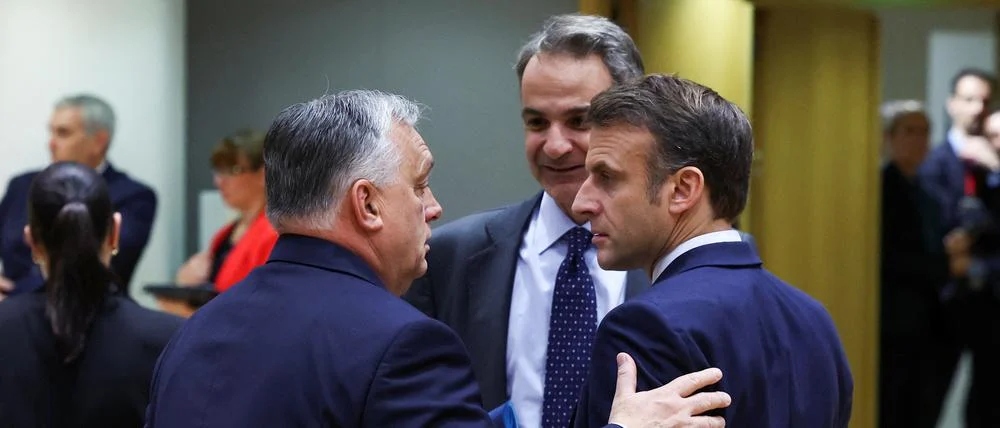Ukraine’s path toward the European Union has become one of the most contentious and politically sensitive enlargement processes in decades. Hungary’s Viktor Orbán remains the loudest opponent, systematically blocking progress, while the European Council and several member states search for ways to bypass Budapest’s veto.
Yet, as Politico reports, some “unexpected allies” have emerged — not opposing Ukraine’s candidacy outright, but pushing back against proposals to change the EU’s decision-making rules. A plan by new European Council President António Costa would replace unanimity with qualified majority voting at intermediate stages of accession. This idea has sparked opposition from countries including Greece, France, and the Netherlands.
The Greek angle: sovereignty tools and the Turkey question
Athens has strong reasons to be wary of removing the unanimity requirement in EU enlargement. The right to veto is a critical geopolitical instrument for Greece, primarily in relation to Turkey’s frozen — but not dead — EU candidacy.
For Greek diplomacy, the veto is a safeguard ensuring that Ankara’s membership bid cannot be revived without Athens’ consent, especially at a time of persistent tensions in the Aegean and Eastern Mediterranean. Losing that leverage by shifting to majority voting could weaken Greece’s ability to defend its national interests.
France’s position and the broader picture
France, meanwhile, has made clear it supports Ukraine’s European path. President Emmanuel Macron has repeatedly stressed that accession is possible, but only after deep reforms — signaling caution against rushing the process or bending the rules.
Geopolitically, the divide is clear:
- On one side, states pushing for Ukraine’s fast-track integration as a bulwark against Russia.
- On the other, countries determined to preserve their veto power over problematic candidates.
Greece in the middle
Greece’s position should not be conflated with Orbán’s. Unlike Hungary, Athens is not seeking to derail Ukraine’s candidacy or align with pro-Russian arguments. Instead, it sees Costa’s proposal as a structural risk: changing the rules now for Ukraine could undermine Greece’s ability to act tomorrow on other critical cases.
Cyprus shares similar concerns, with its own sensitivities over Turkey. Bulgaria and Croatia, too, have historically used the veto as leverage against North Macedonia and Serbia, respectively.
An uncertain road ahead
Ironically, any change to the EU’s accession rules would itself require unanimity — making Costa’s proposal difficult to realize. The debate at this week’s Copenhagen summit will reveal how far European leaders are willing to push.
For Ukraine, the message is mixed: political support at the highest level remains strong, but the road to Brussels will be slow and politically fraught. Greece and its neighbors are likely to continue using the veto not to block Kyiv specifically, but to safeguard their own geopolitical cards.
Πηγή: pagenews.gr
